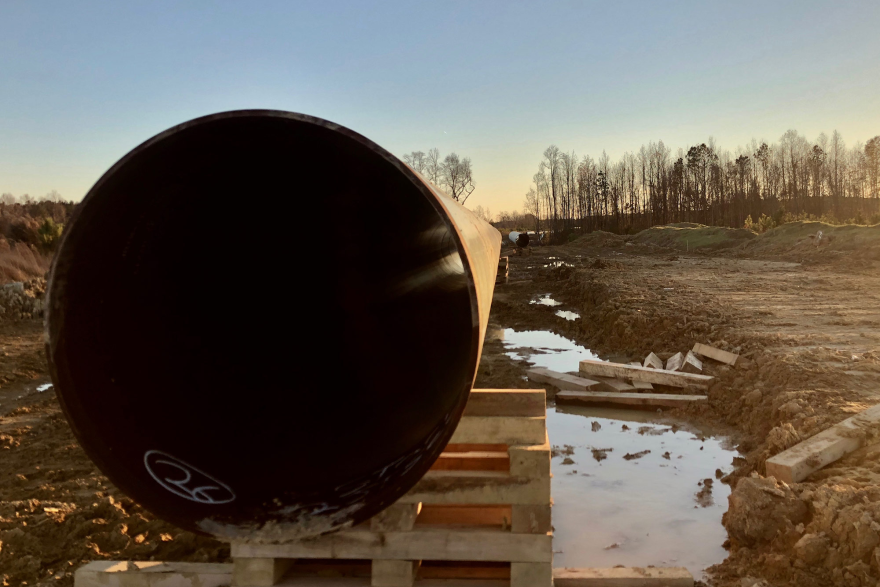Construction of the planned 600-mile underground pipeline is already behind schedule. Protests and bureaucratic hurdles plague the Atlantic Coast Pipeline, which is planned to carry natural gas from West Virginia, to Southeast Virginia before turning south into the North Carolina counties of Northampton, Halifax, Nash, Wilson, Johnston, Sampson, Cumberland and Robeson, where it ends.
Critics note that the proposed pipeline’s route falls in areas that are disproportionately Native American. In 2018, the pipeline companies offered $1 million each to the Lumbee and Haliwa Saponi Indian tribes in return for ease of construction. The North Carolina tribes turned down the offer. In addition, Gov. Roy Cooper came under fire in a recently published investigation, requested by Republican General Assembly leaders, into the permit process leading pipeline companies to establish a $57.8 million environmental mitigation fund beforehand.
Host Frank Stasio speaks with Dan Kane, an investigative journalist for The News & Observer, about the politics of building a pipeline. Also joining the conversation is Lyndsey Gilpin, founder and editor-in-chief of Southerly and a freelance journalist, who traveled along the pipeline’s route documenting affected voices for articles with Grist and bioGraphic.
INTERVIEW HIGHLIGHTS:
Kane on reasons for the GOP investigation into the pipeline permit:
They're concerned about basically three things being intertwined: one being this permit for the pipeline, the other being this mitigation fund — which actually didn't have a very clear definition when it was first announced — then the third thing was the settlement of a battle between solar companies and Duke [Energy] over basically access to the grid to be able to sell power to Duke.
Gilpin on the economic defense of the pipeline:
Most of the places along the route are not getting those specialized jobs.
This project has been pitched as an economic silver bullet basically, particularly for communities in Appalachia that are struggling from the decline of coal. 17,000 jobs is the number that Dominion and Duke say that will happen from the pipeline. And what happens is that most of the places along the route are not getting those specialized jobs [like] welders, workers that come in from out of state from these contracting companies. And, and on top of that, you have the fact that there is just not building because of the stop-and-start progression of the pipeline. There's just not a ton of consistent economic livelihood in these places from the pipeline.
https://www.youtube.com/watch?v=NCLGfrFnBuU
Gilpin made this mini-documentary film for Grist and Southerly about environmental justice organizing in communities in Halifax and Northampton Counties along the route of the Atlantic Coast Pipeline.
Gilpin on rural organizing against the pipeline:
Belinda [Joyner] leads the Concerned Citizens of Northampton County, and that started many years ago when they were trying to fight off a liquid fertilizer plant. They fought off a lot of hog farming permits in Halifax County and Northampton County. And then, most recently last year, they stopped a coal ash landfill from coming into their community because they were going door-to-door organizing folks to come to meetings. And they tried to do the same with the pipeline, but it's proven harder.
No matter what happens, the companies will still have to get new permits.
Gilpin on the pending Supreme Court case:
So the US Forest Service granted a permit a few years ago for the ACP to go under the Appalachian Trail on Forest Service land, and a lower court — the Fourth Circuit Court of Appeals — rejected that permit. That halted construction in December 2018. Dominion appealed that, and that got sent to the Supreme Court … The Supreme Court is going to hear oral arguments in February. No matter what happens, the companies will still have to get new permits. They will have to go through that process, not just for the Forest Service, but also [for the] Army Corps [of Engineers] and US Fish and Wildlife.



